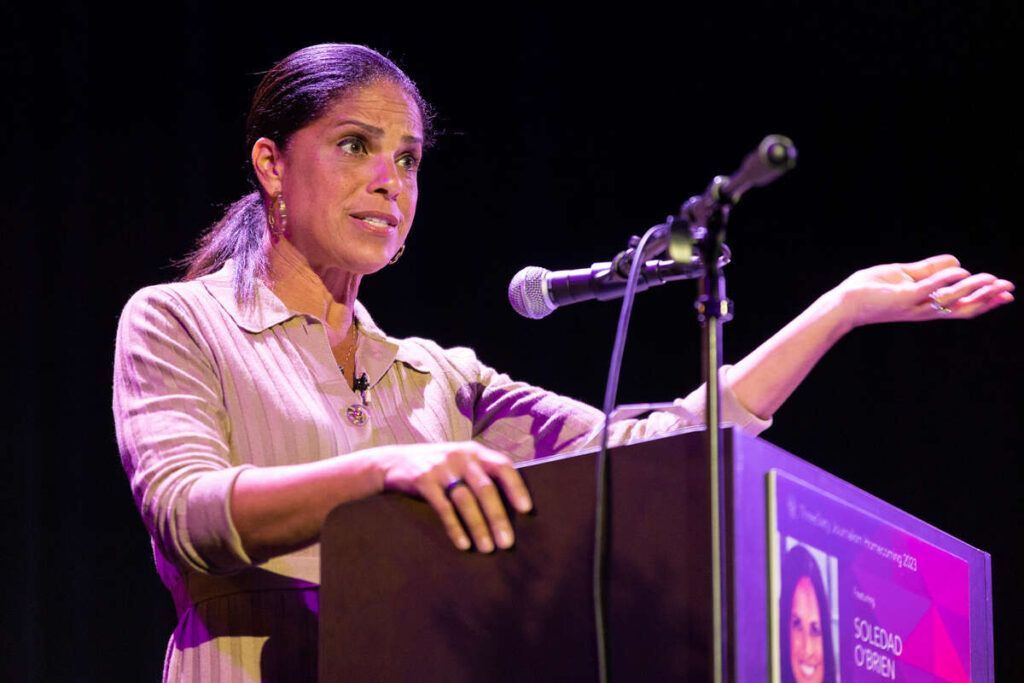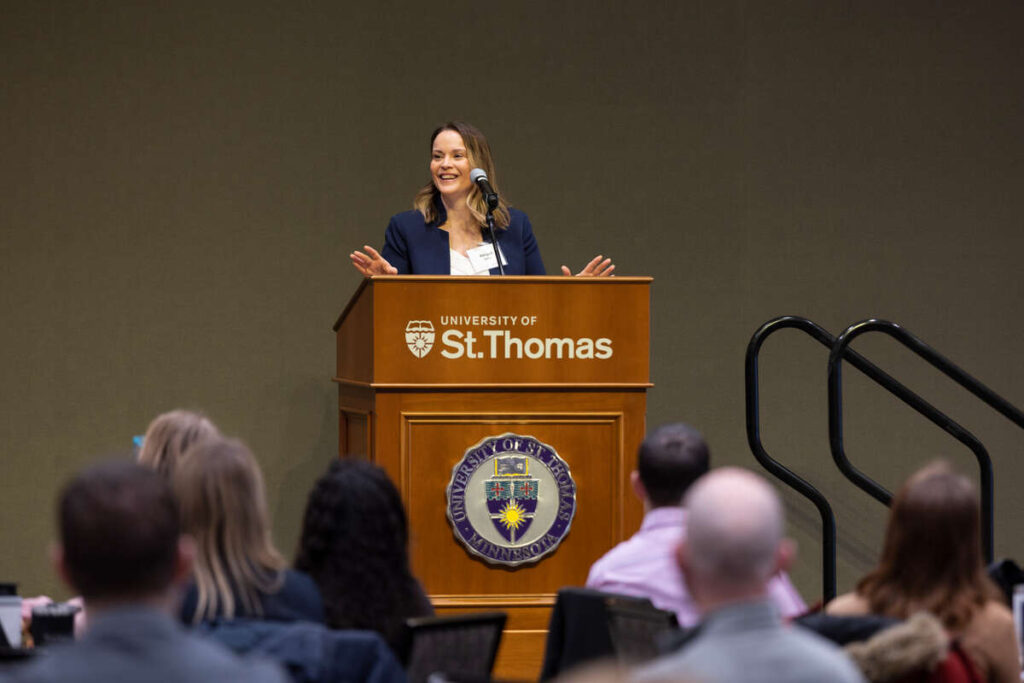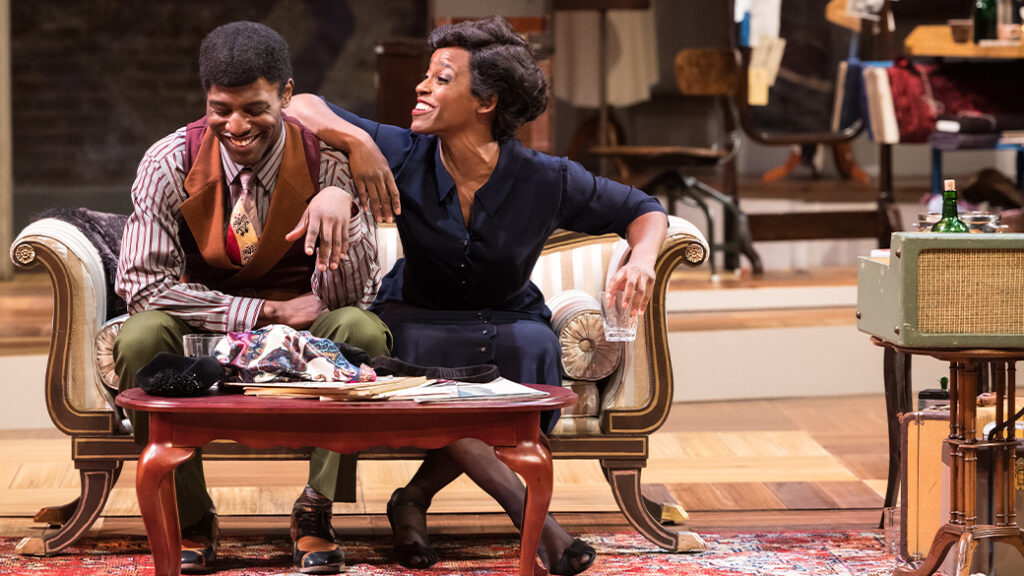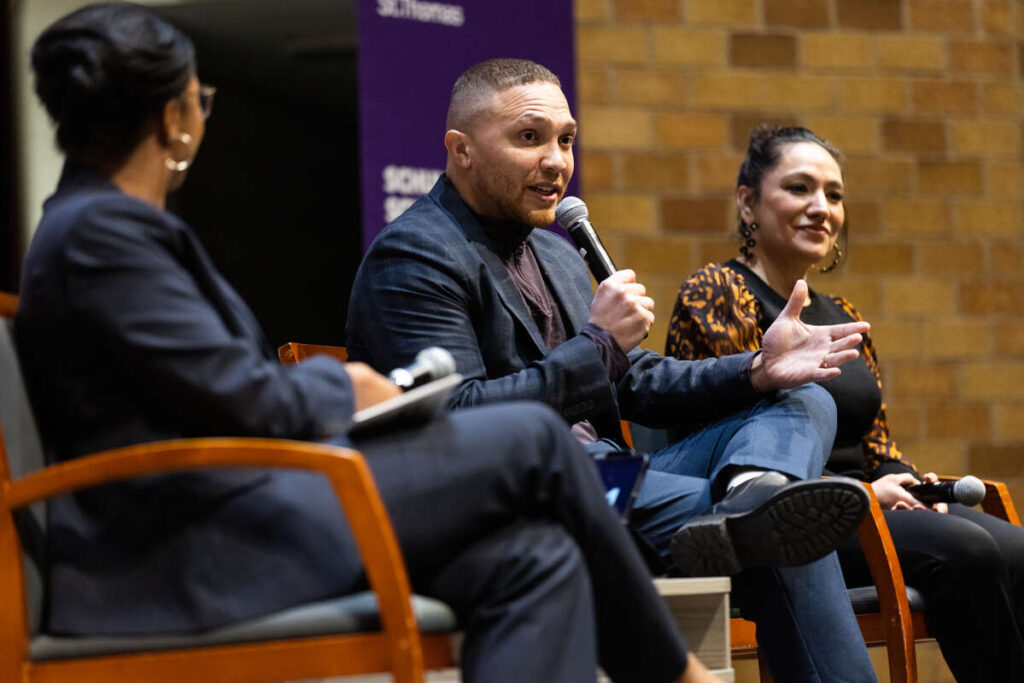Shari Ballard, CEO of Minnesota United FC, and Dean Stefanie Lenway of Opus College of Business sat down on April 1 to reflect on leadership and what Ballard has learned in the first eight months as CEO of the state’s Major League Soccer team.
Ballard, who has previously been named by Fortune as one of the 100 most powerful women in business, became CEO of Minnesota United in 2021 after working in various roles at Best Buy for 26 years.
Here are five observations from the First Friday Speaker Series conversation.
The “world’s sport” is growing in America.
Minnesota United is a relatively young club, with its first season of MLS play just five years ago. Last year, the team made it into the first round of the 2021 MLS Cup playoffs.
This success is shown on the field and through the fan experience. With sold-out matches in the 19,000-capacity stadium and a waitlist for season tickets, success is radiating from Allianz Field.
With soccer growing exponentially in Minnesota and across the U.S., having this success as a foundation is key for the future. With this growth comes an enhanced fan base, Ballard explained. Specifically, the sport’s audience, relative to other professional sports in America, tends to draw a more diverse, younger and more digital crowd.
“It’s an exciting time to attract new audiences and new people to sports in the U.S., she added. “It’s fun and it’s also an honor.”
Growing “the world’s sport” in America has been fueled by the passion of everybody involved.
It’s soccer, but it’s also a business.
As a business, the foremost mission of Minnesota United is to make sure employees understand what they do.
“We play soccer at a very high level, we stay committed to getting to a higher level and we deliver on fan experience,” Ballard said.
Similar to any other organization, Minnesota United is consistently looking for the right talent to produce a winning product.
There are many ways to face the “economics of the roster,” Ballard said. Some MLS teams engage players via compensation, some teams draw homegrown players and some are more focused on selling players as a part of their business.
“For Minnesota United, our belief is it’s the combination,” Ballard said. “It’s having a strong academy, a really strong development pipeline and a really good core culture of guys on our team that play at a really high level.”
Leadership means making the sum greater than the parts.
Ballard said that as a leader, she has learned the importance of creating a collaborative environment and a place where one makes the sum of the organization greater than the parts. Ballard tagged this process, “One plus one equals three.”
“That’s the job of leadership, whether it is my job at Best Buy or CEO at Minnesota United,” she explained.
When describing similarities between working for an athletic organization and for a technology company, she explained that at the core, they are both jobs focusing on people. In any leadership position, her goals are the same: to know her team, to understand what each team members’ gifts are and to get them into roles that maximize those gifts.
“In that respect, the jobs are extraordinarily similar. It’s a people job and it’s a leadership job,” she said.
Her two roles have differed in scale and overall product but have aligned in their drive to inspire people toward a common mission.
Leaders should be perceptive of each player’s gifts.
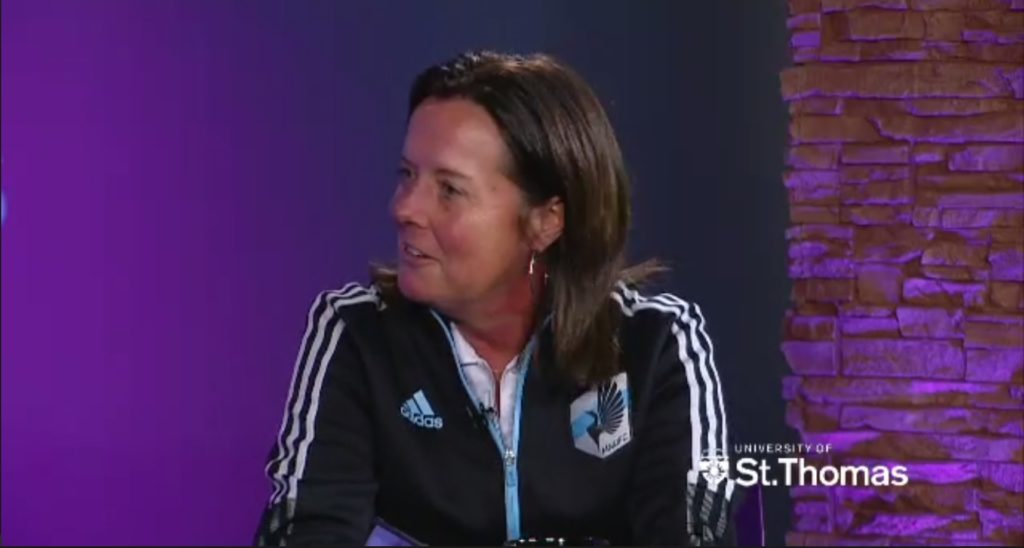
People must believe “the why,” Ballard said. As a club, Minnesota United strives to promote soccer in a way that is unifying; that’s the club’s why.
“You don’t have to go any further than a game day at Allianz,” Ballard said. “Look across the stadium and you see all kind of different people from all different aspects of life. We all get there in our own story. On game day, it is 100% we are one.”
Ballard said this bigger purpose drives a communal appreciation for one another.
“In my view, it’s a microcosm of the very best of humanity. At the core, that is what we are trying to do,” she said.
Whether it is youth soccer in Minnesota or at a higher level like the Loons, the core of the sport is believing in it and believing in each other.
This belief is not just shown via the players and the fans but is within the leadership at Minnesota United.
Ballard sees leadership as, “Enabling other people to participate in bigger ways based on their unique ability to see something or do something that somebody else can’t. Every single person has gifts that are unique to them.”
Sports have the power to unite people.
“At the center of soccer is such a commitment to the communities that soccer is a part of. This is true for MLS soccer, but it’s true for the broader soccer community,” she said.
Ballard explained that soccer is exceptionally diverse. Because of this, having who the team is serving being represented in the leadership of the sport is critical.
“I have come to appreciate the importance of people being able to see themselves in roles and believe they can do it,” she explained.
Ballard said she feels responsible to be a leader where all people with diverse backgrounds and upbringings can view her as a motivation.
“You want to do it in a way where the broadest number of people are attracted to the job as possible,” she said.
Going forward, she said expanding the fan base to help people understand and be educated on the stories that form the sport is an important endeavor.
